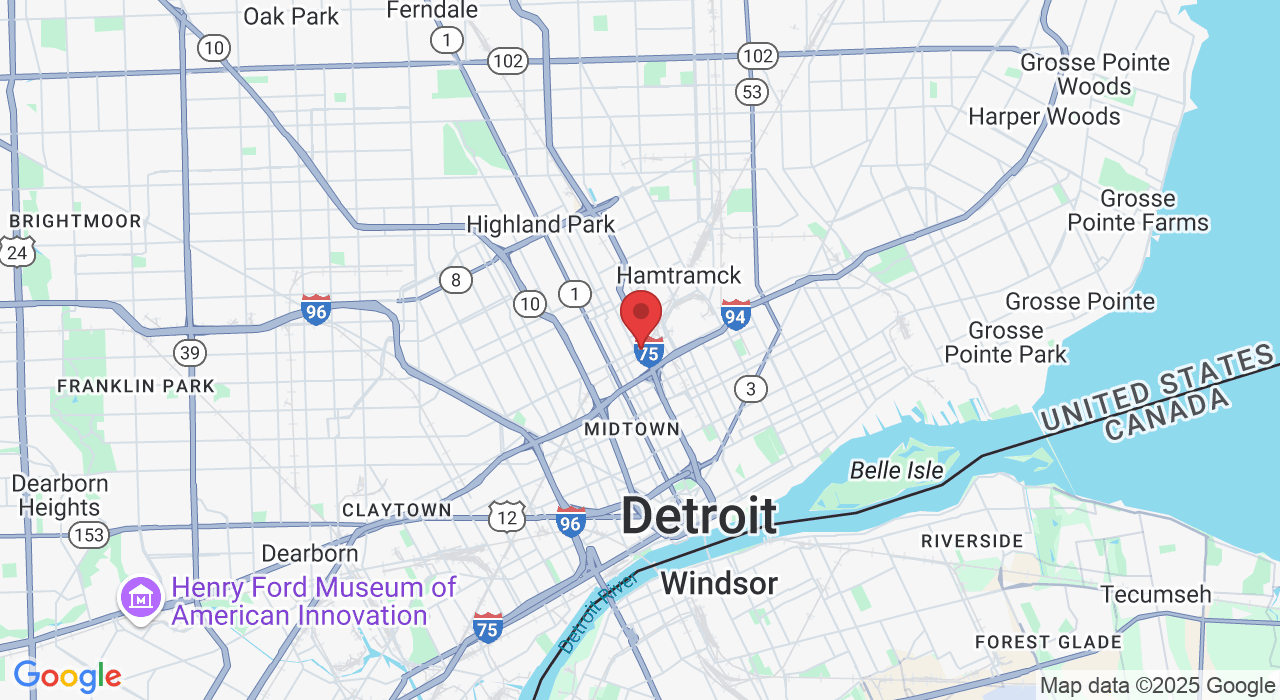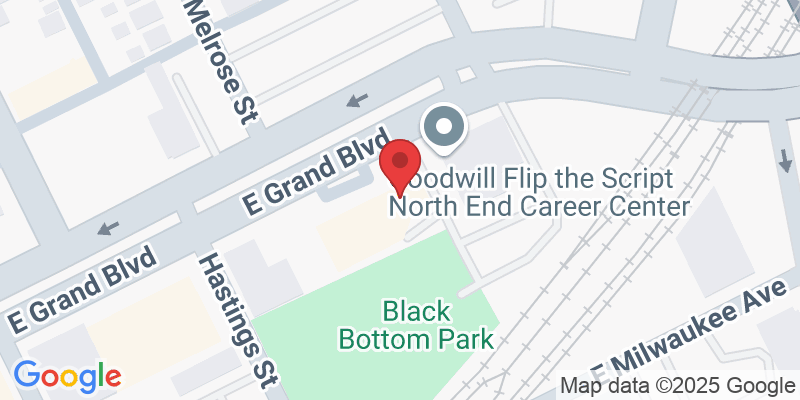
We have the tools and resources to help you start or
scale your business. Join our thriving community and
stay connected with us.

We have the tools and resources to
help you start or scale your business.
Join our thriving community and stay
connectedwith us.


Being an entrepreneur is hard, and having the proper resources can be frustrating. You do not have to go at it alone. We have courses and a community to help educate you (Real Life XP), a full CRM system to help you automate your processes (The Real Life Business Builder), and coaching to help you implement what you've learned.


Being an entrepreneur is hard, and having
the proper resources can be frustrating.
You do not have to go at it alone. We have courses and a community to help educate
you (Real Life XP), a full CRM system to help
you automate your processes (The Real
Life Business Builder), and coaching to help
you implement what you've learned.

We understand that minority entrepreneurs have different needs and we cater to those.
Real Life XP
Our flagship entrepreneur accelration course
covers the entreprenur mindset, developing
systems and processes for your business,
building credit and acquiring funding for your
business and much more.


Coaching and Consulting
The right guidance can help entrepreneurs
overcome obstacles or avoid them all together.
We offer one-on-one and group coaching
to guide entrepreneurs through the maze of
business building.
The Real Life Business Builder Community
Our free community for entrepreneurs offers
courses, eBooks, group coaching,
and other resources for the growth and
development of entrepreneurs.


The Real Life Business Builder
The Real Life Business Builder is a full CRM, marketing, and automation system that we help set up for our clients to ensure implementation. Our lowest plan is just $80 a month and includes a free website and basic automation set up.
Tax Preparation, Training,
and Software
Small businesses need tax preparers who
understand small businesses. We now offer tax preparation services, tax preparation training,
and tax software to ensure entrepreneurs are able to plan for taxes and receive maximum returns.


Business Credit and
Business Funding
Without capital, your business will not be able to grow. We help clients start from nothing and build business credit in less than 90 days. We also ensure that you fit the criteria to apply for different business funding options.
The Ultimate Business
Builder Blueprint
Let us help you create an irresistible offer,
a professional funnel to generate leads,
marketing and ads to increase your reach,
CRM software to manage leads, and coaching
to put it all together.


We understand that minority
entrepreneurs have different needs
and we cater to those.

Real Life XP
Our flagship entrepreneur accelration course covers the entreprenur mindset, developing systems and processes
for your business, building credit and acquiring funding for your business and much more.

Coaching and Consulting
The right guidance can help entrepreneurs
overcome obstacles or avoid them all together. We offer one-on-one and group coaching to guide entrepreneurs through the maze of business building.

The Real Life Business
Builder Community
Our free community for entrepreneurs offers courses, eBooks, group coaching,
and other resources for the growth and
development of entrepreneurs.

The Real Life Business Builder
The Real Life Business Builder is a full CRM, marketing, and automation system that we help set up for our clients to ensure implementation. Our lowest plan is just $80 a month and includes a free website and basic automation set up.

Tax Preparation, Training,
and Software
Small businesses need tax preparers who
understand small businesses. We now offer tax preparation services, tax preparation training,
and tax software to ensure entrepreneurs are able to plan for taxes and receive maximum returns.

Business Credit and
Business Funding
Without capital, your business will not be able to grow. We help clients start from nothing and build business credit in less than 90 days. We also ensure that you fit the criteria to apply for different business funding options.

The Ultimate Business
Builder Blueprint
Let us help you create an irresistible offer,
a professional funnel to generate leads,
marketing and ads to increase your reach,
CRM software to manage leads, and coaching
to put it all together.



What Makes a Business Website High Converting?
What Makes a Business Website High Converting?
In today's digital marketplace, your business website serves as more than just an online brochure it's your hardest-working salesperson, operating 24/7 to convert visitors into leads and customers. Yet many businesses struggle with websites that attract traffic but fail to generate meaningful conversions.
The difference between websites that merely exist and those that actively drive business growth often comes down to specific, strategic elements that guide visitors toward conversion. Let's explore the key factors that transform an ordinary business website into a high-converting sales engine.
1. Clear, Compelling Value Proposition
The foundation of any high-converting website is a value proposition that immediately communicates why visitors should choose your business over competitors. This proposition needs to be instantly visible and compelling.
Elements of an Effective Value Proposition:
Clarity: Explains what you offer in straightforward language
Relevance: Addresses specific customer pain points or desires
Distinction: Highlights what makes your offering unique
Conciseness: Communicates value in a quick, scannable format
Your value proposition should appear prominently on your homepage and remain consistent throughout the site. When visitors understand your unique value within seconds of arrival, they're significantly more likely to continue exploring and eventually convert.
2. Intuitive, Frictionless User Experience
A website that converts effectively removes all unnecessary barriers between the visitor and the desired action. Even small points of friction can significantly impact conversion rates.
Essential UX Elements for Conversion:
Logical Navigation: Intuitive menu structure that helps visitors find what they need
Mobile Optimization: Seamless experience across all devices (over 50% of web traffic is now mobile)
Fast Loading Speed: Each second of delay reduces conversions by up to 7%
Simplified Forms: Only asking for information that's absolutely necessary
Consistent Design: Maintaining visual and functional consistency across pages
Think of your website as a physical store if customers can't find what they're looking for or encounter obstacles while shopping, they'll leave. The same principle applies online, but the threshold for frustration is much lower.
3. Strategic Call-to-Action Placement
High-converting websites guide visitors through a deliberate journey with strategically placed calls-to-action (CTAs) that prompt the next step at exactly the right moment.
Effective CTA Strategy:
Visual Prominence: Using contrasting colors and white space to make CTAs stand out
Action-Oriented Language: Using verbs that prompt specific actions
Value-Based Messaging: Focusing on what visitors get, not what they must do
Strategic Placement: Positioning CTAs at points of high engagement and decision readiness
Progressive Commitment: Offering both low-commitment and high-commitment options
The most effective websites include both primary CTAs (for main conversion goals like purchases or consultations) and secondary CTAs (for smaller commitments like newsletter signups or resource downloads), creating multiple conversion opportunities.
4. Trust Signals and Social Proof
Conversion requires trust, particularly when visitors are considering a significant purchase or commitment. High-converting websites strategically incorporate elements that build credibility and reduce perceived risk.
Essential Trust Elements:
Customer Testimonials: Authentic reviews from satisfied customers
Case Studies: Detailed examples of successful client outcomes
Industry Credentials: Certifications, awards, and professional affiliations
Security Indicators: SSL certificates, security badges, and privacy policies
Client Logos: Visual representation of notable customers
Media Mentions: Recognition from trusted publications
The strategic placement of these elements matters incorporate trust signals near points of decision to address potential hesitation at the exact moment visitors may be experiencing doubt.
5. Persuasive, Benefit-Focused Content
Content on high-converting websites goes beyond explaining what you offer it communicates how your solution transforms the visitor's situation. This shift from features to benefits creates emotional connection and motivation.
Conversion-Centered Content Approach:
Problem-Agitation-Solution Framework: Acknowledging pain points before presenting solutions
Scannable Formatting: Using headers, bullet points, and short paragraphs for easy consumption
Specific Outcomes: Quantifying benefits when possible ("Save 5 hours per week")
Customer-Centric Language: Using "you" and "your" rather than "we" and "our"
Addressing Objections: Proactively answering common concerns or questions
Effective content guides visitors through a psychological journey from problem awareness to solution confidence, removing obstacles to conversion at each step.
6. Optimized Landing Pages for Specific Traffic Sources
General website pages rarely convert as effectively as purpose-built landing pages designed for specific traffic sources or campaigns. High-converting websites utilize targeted landing pages that maintain message consistency from ad to action.
Landing Page Best Practices:
Message Match: Ensuring headlines and offers align with the referring source
Focused Objective: Limiting each landing page to a single conversion goal
Minimal Navigation: Removing distractions that could lead visitors away
Relevant Imagery: Using visuals that reinforce the specific offer
Urgency Elements: Incorporating limited-time offers or scarcity when appropriate
These dedicated pages create a cohesive experience from initial interest to conversion, dramatically improving conversion rates compared to general website pages.
7. Strategic Use of Social Media Integration
While social media icons are standard on most websites, high-converting sites use social integration strategically to support the conversion journey rather than distract from it.
Effective Social Integration:
Selective Placement: Adding social sharing options on high-value content, not conversion-focused pages
Social Proof Integration: Displaying real-time social activity related to your products or services
User-Generated Content: Incorporating customer posts and images that showcase your offerings
Community Highlights: Featuring active social communities that prospects can join
The key is using social elements to enhance trust and engagement while being careful not to create exit paths at critical conversion points.
8. Continuous Testing and Optimization
Perhaps the most important characteristic of high-converting websites is that they're never truly "finished." They evolve continuously based on user behavior data and systematic testing.
Essential Testing Elements:
A/B Testing: Comparing variations of key pages and elements
Heat Map Analysis: Visualizing where visitors focus attention and click
User Session Recordings: Observing how real visitors navigate your site
Conversion Path Analysis: Identifying where potential customers drop off
Customer Feedback Integration: Acting on direct input from users
This data-driven approach transforms website design from a subjective art into a science of continuous improvement, with each iteration increasing conversion effectiveness.
9. Personalization and Intelligent Recommendations
The highest-converting websites adapt to individual visitors, showing content and offers based on behavior, demographics, or past interactions.
Personalization Approaches:
Geographic Customization: Adjusting offerings based on visitor location
Behavioral Targeting: Recommending content based on browsing patterns
Return Visitor Recognition: Acknowledging and building on previous interactions
Industry-Specific Messaging: Tailoring content for different business segments
Intelligent Product Recommendations: Suggesting relevant additional offerings
Even simple personalization can significantly impact conversion rates by making visitors feel understood and valued.
10. Clear, Compelling Pricing Strategy
How you present pricing can dramatically impact conversion rates. High-converting websites approach pricing with strategic psychology rather than merely listing costs.
Effective Pricing Approaches:
Value Anchoring: Positioning premium options to make standard offerings appear more attractive
Transparent Cost Structures: Eliminating surprise fees or hidden costs
Value Justification: Clearly connecting price to specific benefits
Comparison Frameworks: Making it easy to understand differences between options
Risk Reduction: Offering guarantees, free trials, or easy cancellation
The goal is not necessarily to be the lowest-priced option but to create the clearest connection between price and value, removing financial uncertainty as a conversion barrier.
From Theory to Implementation
Understanding these principles is just the beginning implementation requires prioritization based on your specific business model and customer journey. Consider starting with:
Audit Your Current Site: Analyze existing conversion rates and identify major gaps
Prioritize High-Impact Changes: Focus first on elements with the greatest potential return
Implement Measurement Tools: Ensure you can track the impact of changes
Create a Testing Calendar: Schedule regular optimization experiments
Collect Visitor Feedback: Supplement analytics with direct customer input
Remember that conversion optimization is not a one-time project but an ongoing process of refinement. The most successful business websites are those that continuously evolve based on user behavior and business goals.
By implementing these key elements and committing to continuous improvement, you can transform your business website from a digital brochure into a powerful conversion engine that drives meaningful business growth.

What Makes a Business Website High Converting?
What Makes a Business Website High Converting?
In today's digital marketplace, your business website serves as more than just an online brochure it's your hardest-working salesperson, operating 24/7 to convert visitors into leads and customers. Yet many businesses struggle with websites that attract traffic but fail to generate meaningful conversions.
The difference between websites that merely exist and those that actively drive business growth often comes down to specific, strategic elements that guide visitors toward conversion. Let's explore the key factors that transform an ordinary business website into a high-converting sales engine.
1. Clear, Compelling Value Proposition
The foundation of any high-converting website is a value proposition that immediately communicates why visitors should choose your business over competitors. This proposition needs to be instantly visible and compelling.
Elements of an Effective Value Proposition:
Clarity: Explains what you offer in straightforward language
Relevance: Addresses specific customer pain points or desires
Distinction: Highlights what makes your offering unique
Conciseness: Communicates value in a quick, scannable format
Your value proposition should appear prominently on your homepage and remain consistent throughout the site. When visitors understand your unique value within seconds of arrival, they're significantly more likely to continue exploring and eventually convert.
2. Intuitive, Frictionless User Experience
A website that converts effectively removes all unnecessary barriers between the visitor and the desired action. Even small points of friction can significantly impact conversion rates.
Essential UX Elements for Conversion:
Logical Navigation: Intuitive menu structure that helps visitors find what they need
Mobile Optimization: Seamless experience across all devices (over 50% of web traffic is now mobile)
Fast Loading Speed: Each second of delay reduces conversions by up to 7%
Simplified Forms: Only asking for information that's absolutely necessary
Consistent Design: Maintaining visual and functional consistency across pages
Think of your website as a physical store if customers can't find what they're looking for or encounter obstacles while shopping, they'll leave. The same principle applies online, but the threshold for frustration is much lower.
3. Strategic Call-to-Action Placement
High-converting websites guide visitors through a deliberate journey with strategically placed calls-to-action (CTAs) that prompt the next step at exactly the right moment.
Effective CTA Strategy:
Visual Prominence: Using contrasting colors and white space to make CTAs stand out
Action-Oriented Language: Using verbs that prompt specific actions
Value-Based Messaging: Focusing on what visitors get, not what they must do
Strategic Placement: Positioning CTAs at points of high engagement and decision readiness
Progressive Commitment: Offering both low-commitment and high-commitment options
The most effective websites include both primary CTAs (for main conversion goals like purchases or consultations) and secondary CTAs (for smaller commitments like newsletter signups or resource downloads), creating multiple conversion opportunities.
4. Trust Signals and Social Proof
Conversion requires trust, particularly when visitors are considering a significant purchase or commitment. High-converting websites strategically incorporate elements that build credibility and reduce perceived risk.
Essential Trust Elements:
Customer Testimonials: Authentic reviews from satisfied customers
Case Studies: Detailed examples of successful client outcomes
Industry Credentials: Certifications, awards, and professional affiliations
Security Indicators: SSL certificates, security badges, and privacy policies
Client Logos: Visual representation of notable customers
Media Mentions: Recognition from trusted publications
The strategic placement of these elements matters incorporate trust signals near points of decision to address potential hesitation at the exact moment visitors may be experiencing doubt.
5. Persuasive, Benefit-Focused Content
Content on high-converting websites goes beyond explaining what you offer it communicates how your solution transforms the visitor's situation. This shift from features to benefits creates emotional connection and motivation.
Conversion-Centered Content Approach:
Problem-Agitation-Solution Framework: Acknowledging pain points before presenting solutions
Scannable Formatting: Using headers, bullet points, and short paragraphs for easy consumption
Specific Outcomes: Quantifying benefits when possible ("Save 5 hours per week")
Customer-Centric Language: Using "you" and "your" rather than "we" and "our"
Addressing Objections: Proactively answering common concerns or questions
Effective content guides visitors through a psychological journey from problem awareness to solution confidence, removing obstacles to conversion at each step.
6. Optimized Landing Pages for Specific Traffic Sources
General website pages rarely convert as effectively as purpose-built landing pages designed for specific traffic sources or campaigns. High-converting websites utilize targeted landing pages that maintain message consistency from ad to action.
Landing Page Best Practices:
Message Match: Ensuring headlines and offers align with the referring source
Focused Objective: Limiting each landing page to a single conversion goal
Minimal Navigation: Removing distractions that could lead visitors away
Relevant Imagery: Using visuals that reinforce the specific offer
Urgency Elements: Incorporating limited-time offers or scarcity when appropriate
These dedicated pages create a cohesive experience from initial interest to conversion, dramatically improving conversion rates compared to general website pages.
7. Strategic Use of Social Media Integration
While social media icons are standard on most websites, high-converting sites use social integration strategically to support the conversion journey rather than distract from it.
Effective Social Integration:
Selective Placement: Adding social sharing options on high-value content, not conversion-focused pages
Social Proof Integration: Displaying real-time social activity related to your products or services
User-Generated Content: Incorporating customer posts and images that showcase your offerings
Community Highlights: Featuring active social communities that prospects can join
The key is using social elements to enhance trust and engagement while being careful not to create exit paths at critical conversion points.
8. Continuous Testing and Optimization
Perhaps the most important characteristic of high-converting websites is that they're never truly "finished." They evolve continuously based on user behavior data and systematic testing.
Essential Testing Elements:
A/B Testing: Comparing variations of key pages and elements
Heat Map Analysis: Visualizing where visitors focus attention and click
User Session Recordings: Observing how real visitors navigate your site
Conversion Path Analysis: Identifying where potential customers drop off
Customer Feedback Integration: Acting on direct input from users
This data-driven approach transforms website design from a subjective art into a science of continuous improvement, with each iteration increasing conversion effectiveness.
9. Personalization and Intelligent Recommendations
The highest-converting websites adapt to individual visitors, showing content and offers based on behavior, demographics, or past interactions.
Personalization Approaches:
Geographic Customization: Adjusting offerings based on visitor location
Behavioral Targeting: Recommending content based on browsing patterns
Return Visitor Recognition: Acknowledging and building on previous interactions
Industry-Specific Messaging: Tailoring content for different business segments
Intelligent Product Recommendations: Suggesting relevant additional offerings
Even simple personalization can significantly impact conversion rates by making visitors feel understood and valued.
10. Clear, Compelling Pricing Strategy
How you present pricing can dramatically impact conversion rates. High-converting websites approach pricing with strategic psychology rather than merely listing costs.
Effective Pricing Approaches:
Value Anchoring: Positioning premium options to make standard offerings appear more attractive
Transparent Cost Structures: Eliminating surprise fees or hidden costs
Value Justification: Clearly connecting price to specific benefits
Comparison Frameworks: Making it easy to understand differences between options
Risk Reduction: Offering guarantees, free trials, or easy cancellation
The goal is not necessarily to be the lowest-priced option but to create the clearest connection between price and value, removing financial uncertainty as a conversion barrier.
From Theory to Implementation
Understanding these principles is just the beginning implementation requires prioritization based on your specific business model and customer journey. Consider starting with:
Audit Your Current Site: Analyze existing conversion rates and identify major gaps
Prioritize High-Impact Changes: Focus first on elements with the greatest potential return
Implement Measurement Tools: Ensure you can track the impact of changes
Create a Testing Calendar: Schedule regular optimization experiments
Collect Visitor Feedback: Supplement analytics with direct customer input
Remember that conversion optimization is not a one-time project but an ongoing process of refinement. The most successful business websites are those that continuously evolve based on user behavior and business goals.
By implementing these key elements and committing to continuous improvement, you can transform your business website from a digital brochure into a powerful conversion engine that drives meaningful business growth.
What are the benefits of business coaching?
Business coaches help entrepreneurs develop within their personal and business lives, so their businesses can thrive.
This includes identifying strengths and weaknesses, setting personal and professional goals and targets, and holding
the entrepreneur accountable to ensure those goals are reached.
What is Real Life XP?
Real Life XP is our free entrepreneur acceleration course, available in the Real Life Business Builders community. The
three modules in the course focuses first on the entrepreneur mindset, then business systems and processes, and finally building business credit and obtaining business financing.
This course is desgned to help entrepreneurs of all levels.
What is The Real Life Business Builder?
The Real Life Business Builder is an all-in-one CRM and marketing system that we help implement for entrepreneurs to build their contact list and nurture relationships with leads and customers. The system includes a website/funnel builder, email and SMS marketing and the option to brand the software as your own and resale it for profit. With a price as low as $80 per month, you have more than enough room to spend money on ads, which we will also run for you, if need be.
What else do you offer?
Real Life Business Solutions offers a wide range of products
and services, including eBooks, workbooks, courses, and other educational material as well as business plans, marketing plans, and specialized business solutions.
Is group coaching or 1-on-1 coaching available?
Yes, we offer different coaching programs to accommodate clients who enjoy building in a community and those who
are more comfortable in a more personal setting.
Is there some type of guarantee?
Yes. Real Life Business Solutions provides more than enough tools and resources to help entrepreneurs grow into who they need to become to be successful, but doing the work is still up to the client. While we can't guarantee specific results, we can guarantee that we will provide all of the things we promise or you will receive all of your money back.
Do I have to own a business to join the Real Life Business Builder Community?
No. The Real Life Business Builder Community is designed to help entrepreneurs and aspiring entrepreneurs. As long as you are interested in business and business conversations, the community will be of value to you.
Why are there no prices on the website?
Due to the unique nature of every person and every business, consulting prices cannot be quoted until we have our initial strategy session. We offer some programs, with prices, to offer
a starting point, but any personalization will require direct communication before a proposal is drawn up.
What are the benefits of business coaching?
Business coaches help entrepreneurs develop within their personal and business lives, so their businesses can thrive.
This includes identifying strengths and weaknesses, setting personal and professional goals and targets, and holding
the entrepreneur accountable to ensure those goals are reached.
What is Real Life XP?
Real Life XP is our free entrepreneur acceleration course, available in the Real Life Business Builders community. The
three modules in the course focuses first on the entrepreneur mindset, then business systems and processes, and finally building business credit and obtaining business financing.
This course is desgned to help entrepreneurs of all levels.
What is The Real Life Business Builder?
The Real Life Business Builder is an all-in-one CRM and marketing system that we help implement for entrepreneurs to build their contact list and nurture relationships with leads and customers. The system includes a website/funnel builder, email and SMS marketing and the option to brand the software as your own and resale it for profit. With a price as low as $80 per month, you have more than enough room to spend money on ads, which we will also run for you, if need be.
What else do you offer?
Real Life Business Solutions offers a wide range of products and services, including eBooks, workbooks, courses, and other educational material as well as business plans, marketing plans, and specialized business solutions.
Is group coaching or 1-on-1 coaching available?
Yes, we offer different coaching programs to accomodate coaches who enjoy building in a community and those who
are more comfortable in a more personal setting.
Is there some type of guarantee?
Yes. Real Life Business Solutions provides more than enough tools and resources to help entrepreneurs grow into who they need to become to be successful, but doing the work is still up to the client. While we can't guarantee specific results, we can guarantee that we will provide all of the things we promise or you will receive all of your money back.
Do I have to own a business to join the Real Life Business Builder Community?
No. The Real Life Business Builder Community is designed to help entrepreneurs and aspiring entrepreneurs. As long as you are interested in business and business conversations, the community will be of value to you.
Why are there no prices on the website?
Due to the unique nature of every person and
every business, consulting prices cannot be quoted
until we have our initial strategy session. We offer
some programs, with prices, to offer a starting
point, but any personalization will require direct communication before a proposal is drawn up.
Contact Us
(313) 883-9664
Real Life Business Solutions
2785 E Grand Blvd, Suite 381
Detroit, MI 48211
© 2024 Real Life Business Solutions, LLC - All Rights Reserved · Privacy policy
Contact Us
(313) 883-9664
Real Life Business Solutions 2785 E
Grand Blvd, Suite 381Detroit, MI 48211
© 2024 Real Life Business Solutions, LLC -
All Rights Reserved · Privacy policy




